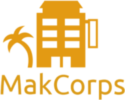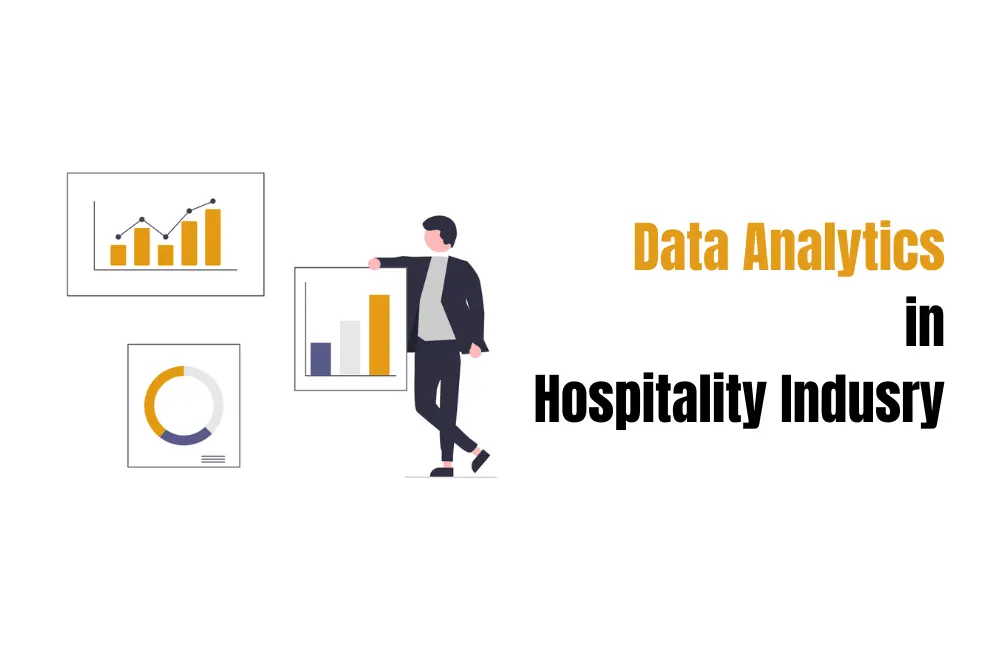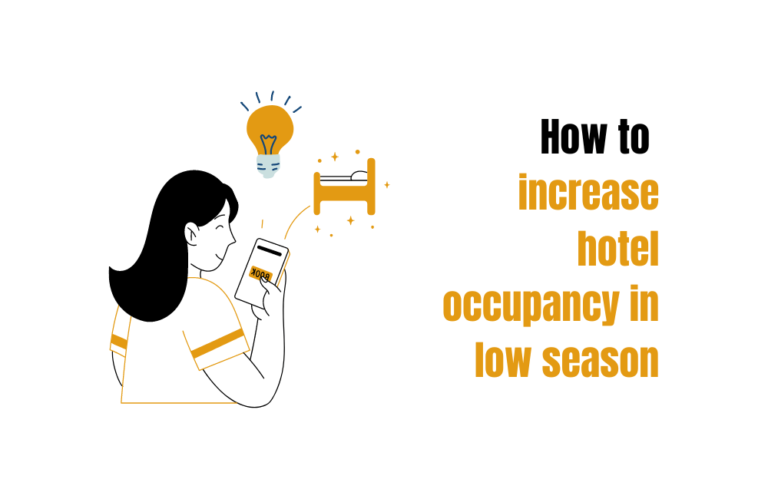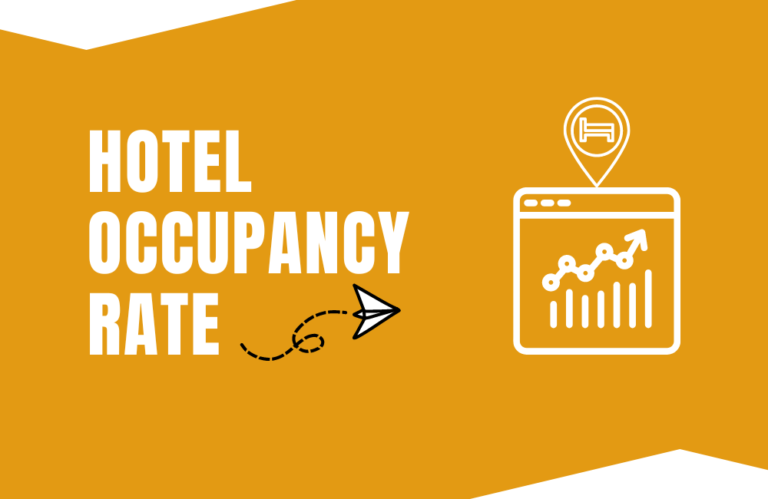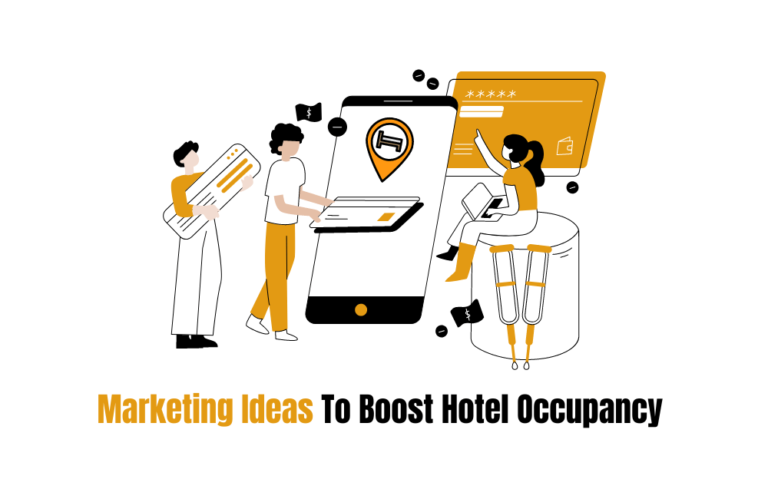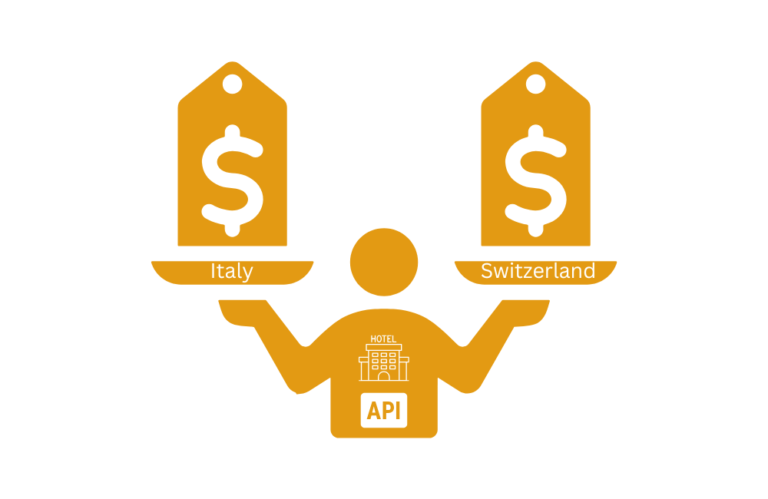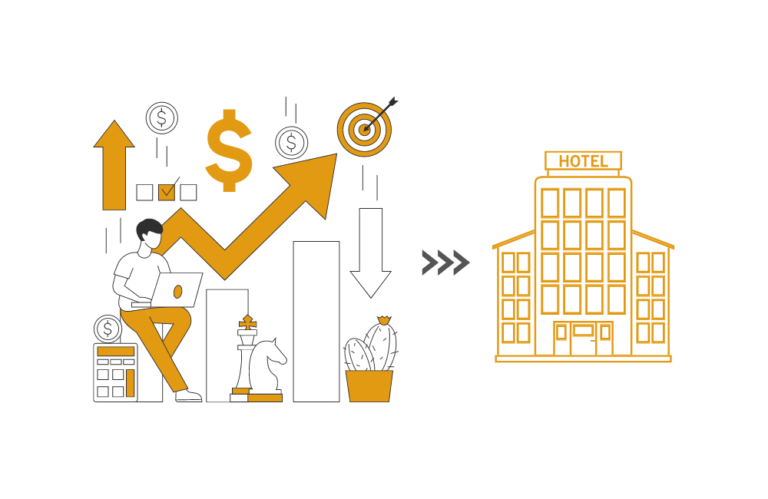Hotel Data Analytics: How It Is Key to Profit and Efficiency
BARC Research shows that businesses using data analytics experience an average of 8% profit growth and a 10% reduction in costs. Even more, 69% of these companies report making better strategic decisions, 54% have stronger control over their operations, and 52% have gained a deeper understanding of their customers.

(Source: BARC Research)
The data understates the necessity of data analytics.
If most of your major moves are still built on guesswork—like trying to predict what your guests want, setting prices you think will work, or rolling out strategies you hope will succeed—then it’s no wonder the results aren’t meeting your expectations.
But don’t worry, we’re here to help!
In this blog, we’ll not only explain why data analytics is so useful for your hotel business, but also show you how to put it into action.
Let’s start by understanding what data analytics is.
What is Hotel Data Analytics Its Types?
Data analytics in the hospitality industry involves collecting and analyzing data to improve decision-making, streamline operations, and enhance the guest experience. Hotels gather vast amounts of information daily from bookings and guest feedback to revenue and occupancy data. Data analytics helps transform this raw data into actionable insights which allows hotels to make informed decisions that drive efficiency, customer satisfaction, and profitability.
Here are the specified types of data analytics used in the hotel industry:
- Descriptive Analytics: It summarizes past data to identify trends and patterns and help hotels understand guest behaviors and operational efficiency.
- Diagnostic Analytics: Investigates reasons behind certain trends which allows hotels to find out and pinpoint the causes of successes or failures.
- Predictive Analytics: It is used in analyzing historical data to forecast future outcomes, such as demand trends and help hotels optimize staffing and inventory.
- Prescriptive Analytics: It Suggests actions based on predictive insights and aims to enhance decision-making in marketing and pricing strategies.
- Real-Time Analytics: Processes data as it is generated to provide immediate insights which is crucial for setting dynamic pricing straties in hotels and incident management.
- Sentiment Analysis: It examines guest reviews and feedback to gauge emotional tones that help in assisting and improving service quality and addressing guest concerns promptly.
Use Cases of Data Analytics In Hotel Industry
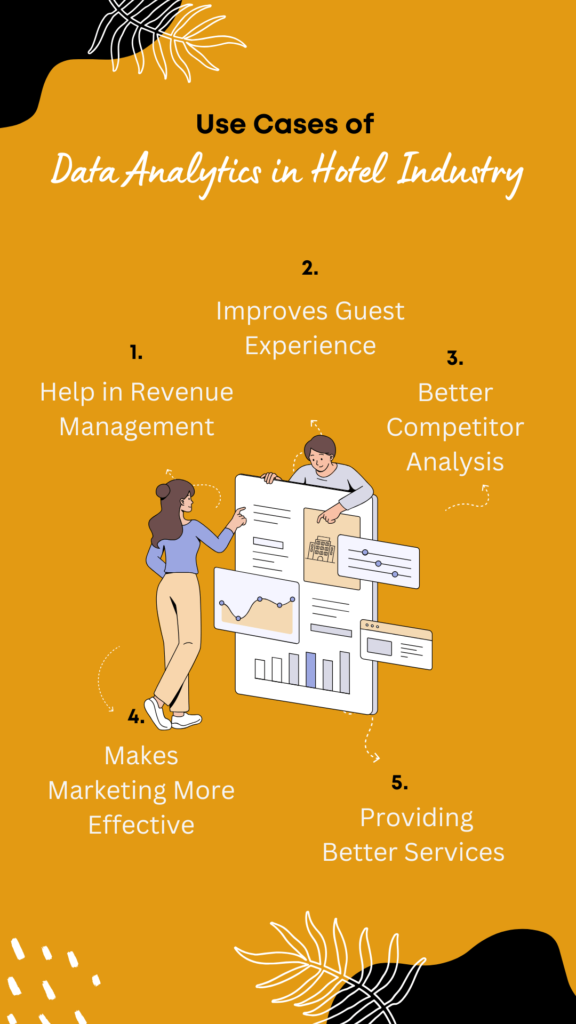
1. Help in Revenue Management
Revenue management professionals use different revenue management tools and techniques to identify opportunities for marketing their services to the right buyer through the appropriate marketing channel at a fair price.
To determine how competitive a property is in comparison to its competitors, experts monitor various measurements.
In addition to that, different kinds of data, such as current bookings, past occupancy levels, and key performance statistics, can be beneficial in improving revenue management.
Aside from accounting, revenue management is one of the most data-heavy departments in hotels.
For making decisions through hotel revenue management analytics, revenue managers combine external data like market demand and competitor activity with internal data like historical performance and business on the books to guide pricing decisions, inventory controls, promotions, and demand forecasting.
To measure the effectiveness of hotel revenue management analytics, here are a few key performance indicators (KPIs) that you need to use:
- Average daily rate (ADR)
- Occupancy (OCC)
- Revenue per available room (RevPAR)
- The average length of stay (ALOS).
- Total revenue per available room (TrevPAR)
- Gross operating profit per available room (GOPPAR) can also be used.
2. Improves Guest Experience
In today’s digital age, hoteliers have a wealth of information about their guests. And, using the power of big data analytics in the hospitality industry they can reach new heights of success.
By investing in social media, online reviews, and guest surveys hotel owners and managers can dive deep into customer feedback and experiences to identify their property’s strengths and weaknesses.
Plus by using hotel guest data analytics data hotel owners can optimize their pricing strategies, identify new market segments, and personalized marketing campaigns and services to personalize guest experience that increases overall guest satisfaction.
3. Better Competitor Analysis
Staying ahead of the competition in the cutthroat world of the hotel industry can be challenging, but with competitive analysis tools, it can be done.
For getting competitor rate insight many hotel rate shopping tools are available, using these hotels can compare their pricing strategies to their competitors and find the best pricing for each room type.
Moreover, to get ahead of their online competitors, a few hotel market data analysis tools can help hoteliers get access to valuable insights into the competition that allow hoteliers to identify services and amenities offered by their rivals and how to improve their own.
4. Makes Marketing More Effective
Data analytics is revolutionizing the way hotels approach marketing. By utilizing a data-driven marketing approach, hoteliers can create personalized and targeted marketing strategies that cater to specific customer types. This not only helps to maximize revenue but also creates a more personalized user experience for guests.
Moreover, hotel industry data analytics can be used beyond traditional marketing channels as well. As you know, currently social media and influencer marketing is the most booming marketing platform for most businesses.
Hotels can use data analysis to identify social media influencers who resonate with their target audience.
By partnering with these influencers, hotels can amplify their reach and connect with potential guests in a more meaningful way.
5. Providing Better Services
In the hotel industry, mastering the perfect pricing strategy and executing personalized, data-driven marketing is crucial for driving growth. However, even with these efforts in place, a lack of necessary services can lead to a loss of repeat and referral business.
If you want your guests to keep coming back and referring others. To make this happen providing them with the services they actually need is the key. And what better way to discover what your guests want than by analyzing their behavior to determine their true desires?
Thankfully, hotels can leverage data analytics to gather and analyze vast amounts of information from their interactions with both potential and existing guests. By doing so, hotel owners can gain valuable insights into their guest’s preferences and behaviors which allows them to make informed decisions on how to improve their services.
This not only enhances the guest experience but also positions the hotel for long-term success in the fiercely competitive hospitality industry.
Now that you understand the significance of data analytics in the hospitality industry. If you want to squeeze out the maximum results two things are important. First, you need to know how to hire a data scientist and then how to do data collection.
So, now you have checked out the sources of data collection for hotels. To get started with hiring check these job descriptions for data scientists and start checking out sources of data collection for hotels.
What are the Sources of Data Collection for Hotels?
Here are a few sources that you can use to collect data for data-driven decision-making:
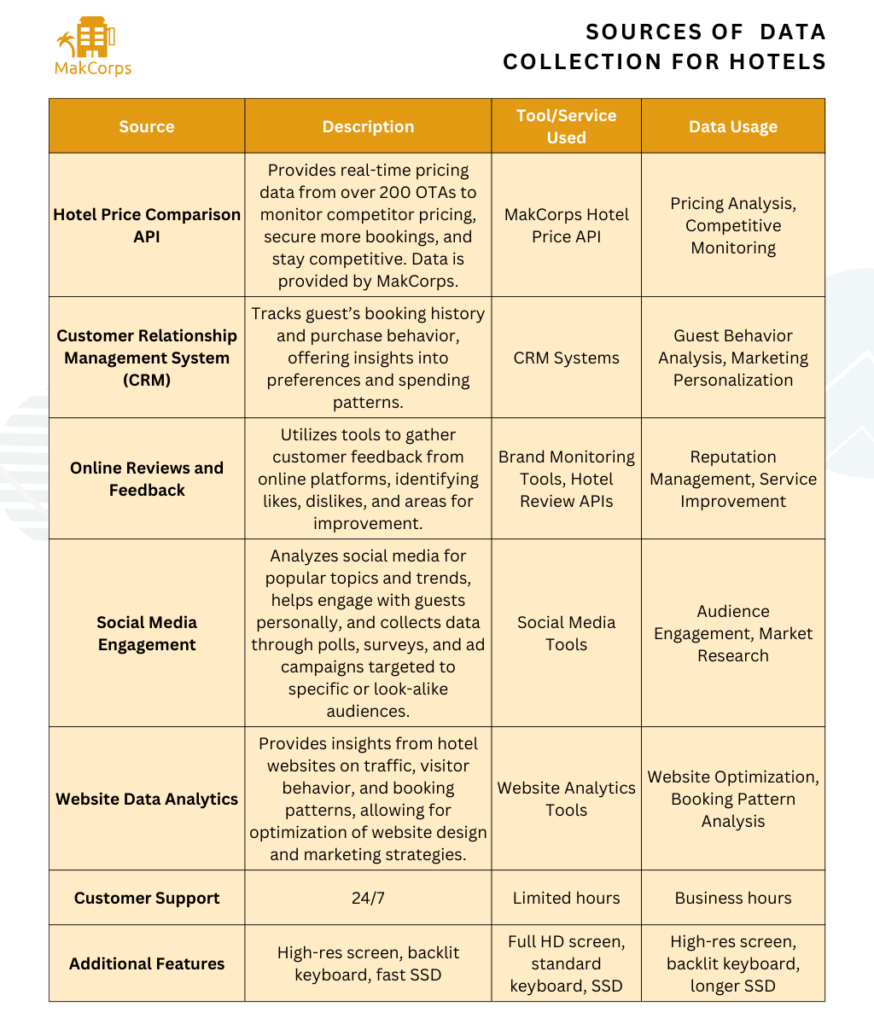
1. Hotel Price Comparision API
For efficient data analysis, real-time and accurate price comparison data is a prerequisite.
To get this, you can use MakCorps Hotel Price API which provides hotel pricing data from more than 200+ OTAs including Tripadvisor, Booking.com, Expedia, Agoda, and more.
With this API, you can effortlessly monitor your competitor’s pricing, secure more bookings, and stay a step ahead in the game.
If this sounds like something you need, watch the video below to learn how MakCorps Hotel API works.
2. Customer Relationship Management System:
By tracking guest’s past bookings and purchase history, CRM systems can provide valuable insights into guests’ preferences, including the types of rooms they prefer, the amenities they value most, and their spending patterns.
3. Online Reviews and Feedback
By using a brand monitoring tool and hotel review APIs, you can get valuable insights into your customer’s likes and dislikes, as well as areas for improvement.
Analyzing those areas of improvement and taking action to improve will not only improve guest experience but also improve your hotel’s reputation online.
4. Engaging Target Audience on Social Media
Hotels can identify popular topics and trends and engage with guests in a more personalized way.
Plus, creating polls, surveys, and other engaging ways can also be used to get your target audience’s preferences.
Even if you don’t have many followers, to get data on the big level you can simply run ad campaigns with the target or look-alike audience.
5. Website Data Analytics
Hotel websites can provide valuable data on website traffic, visitor behavior, and booking patterns.
By analyzing this data, hotels can better understand their guest’s online behavior and preferences it allows them to optimize their website design and marketing efficiency.
Now that you’ve got a handle on website data analytics tools that’ll help you gather the data you need for your analytics, it’s high time we dive into what kind of data analysis reports are a must-have for the hospitality industry.
What Data Analytics Reports Does Your Hotel Need?
1. Guest Identification Reports
In the hospitality industry guest reigns supreme and every hotel must place their guest report at the forefront of its priorities.
From marketing tactics to crafting bespoke experiences that leave an indelible mark on their memory, hoteliers must take a strategic approach to segment their customer data based on key criteria such as age, family background, income, hobbies, and previous purchases.
To truly understand the needs and desires of their target audiences, hoteliers can leverage the power of hotel data management and analytics.
By mining historical booking data, chat logs, reviews, and social media comments, they can create insightful segmented guest reports that reveal valuable insights into what makes their guests tick.
With this hotel guest data, hoteliers can then tailor their services and offerings to exceed guest expectations and set themselves apart from the competition.
2. Transaction Reports
Let’s be clear – transaction reports aren’t just for balancing the books.
In fact, they can be a goldmine of insights that can help you optimize your hotel’s operations and drive more revenue.
By digging into this high-level hotel performance data, you can uncover which days of the week are your most profitable, which marketing campaigns are resonating with your guests, and which payment methods they prefer.
By leveraging this data, you can craft data-driven strategies that are laser-focused on delivering the results you want for your hotel.
So don’t just settle for a stack of numbers – use them to unlock the secrets to success.
3. Forecasting Report
Data analytics forecasting which is also known as predictive analytics is often referred to as predictive analysis, is a game changer for the hotel industry.
By predicting future demand, hoteliers can create successful strategies in advance.
One of the most widely used forecasting techniques in hotels is price forecasting. This involves analyzing booking data, customer behavior data, events, and historical data of hotel prices to determine the optimal price for hotel rooms.
But it doesn’t stop there!
Forecasting demand reports can also be used to predict consumer behavior, improve inventory, and ensure product availability.
This fancy approach is known as revenue management, and the ultimate goal is to provide customers with top-notch products exactly when they need them.
5. Report on Important KPIs
KPIs – (Key Performance Indicators) enable you to keep a close eye on how your hotel business is doing.
To find it out, here are the most important KPIs you need to look at:
- Total number of nights spent (including closed, occupied, and vacant rooms)
- Canceled reservations (let’s hope there aren’t too many of these)
- Average occupancy rate (a crucial metric for any hotelier)
- Length of stay (how long are your guests sticking around?)
- Lead time (how far in advance are people booking?)
- Revenue per booking (gotta keep an eye on that bottom line!)
- Daily pricing (adjusting prices based on demand, competition, and events can make a big difference)
- By analyzing these KPIs, you’ll be able to get a clear picture of how your hotel business is performing and where you might need to make some adjustments.
You’ve just discovered the essential hotel data analytics reports that reign supreme in this industry.
With this knowledge in your pocket, you’re all set to seamlessly use data analytics in your hotel operations. But, make sure you know how to read hotel data reports.
However, before diving in headfirst, take a moment to familiarize yourself with the challenges and opportunities that come along with data analytics in the hospitality industry.
Challenges and Opportunities in Hotel Data Analysis
The rise of technology has created new business opportunities and revenue streams in hospitality but has also brought challenges.
Data privacy and security is a key concern, as hotels store sensitive customer information. Investing in more robust systems and encryption is critical.
Backup systems are also important to avoid data loss.
However, the data revolution also presents opportunities for targeted marketing and a better understanding of consumer behavior.
Conclusion:
When it comes to the growth and success of a hotel business, smart decisions are non-negotiable.
And let’s face it, relying on your gut instinct is detrimental to your business growth.
That’s where reliable solutions like data analytics in the hotel industry are here.
This empowers hotel owners and managers to optimize revenue, enhance the guest experience, analyze competitors, and nail marketing to maximize ROI.
By tapping into the goldmine of guest interactions, hotels gain valuable insights that allow them to make informed choices, and continuously improve their services.
Ultimately, utilizing hotel data analytics is one of the best ways to come out on top.
